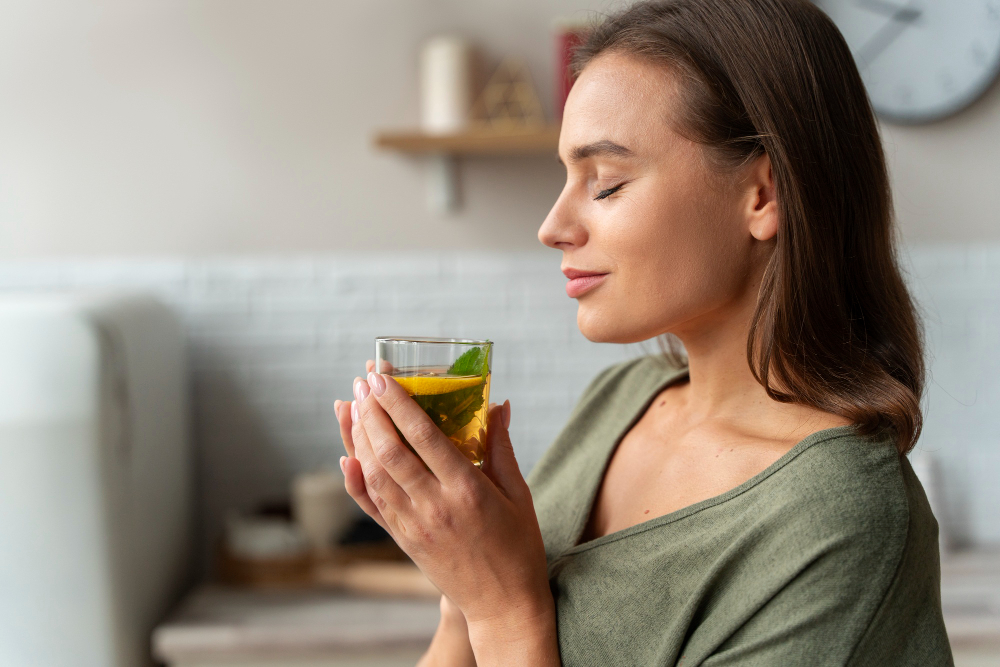Alternative Treatments for Anxiety: How Gut Health, Lifestyle, and Natural Remedies Work Together

Anxiety is more than just feeling nervous — it’s a physiological and psychological state that can affect sleep, digestion, mood, and even the immune system. While conventional treatments like medication and therapy remain essential for many, a growing body of research suggests that alternative treatments for anxiety can offer meaningful support. These approaches don’t just manage symptoms; they often address the root causes — including gut health, inflammation, and lifestyle imbalance. These studies found that probiotics, prebiotics, and dietary interventions may reduce anxiety symptoms and improve mood regulation through gut-brain mechanisms.

Looking Beyond Medication: Why Alternative Approaches Matter
Modern medicine has made huge strides in treating anxiety disorders. Yet for many people, side effects from antidepressants, tolerance build-up, or the desire for a more natural path have led to exploring complementary therapies.
Alternative treatments for anxiety are not about replacing conventional medicine but enhancing it. They emphasize prevention, whole-body balance, and mind-body connection — aligning perfectly with Bioma Health’s holistic philosophy.
A review in Biomedicines (2025) and the Gut Feelings RCT (Frontiers in Neuroscience, 2022) demonstrate that changes in diet and gut microbial activity can influence mood and anxiety through biochemical signalling between the gut and brain.
The Gut-Brain Connection: How Digestion Shapes Your Mood
The gut isn’t just about digestion; it’s sometimes called the second brain. The enteric nervous system houses over 100 million neurons and produces about 90% of the body’s serotonin — a neurotransmitter crucial for mood balance.
When gut bacteria are diverse and balanced, they produce short-chain fatty acids (SCFAs) that reduce inflammation and support healthy brain chemistry. But an unhealthy gut microbiome can trigger the opposite — raising stress hormones and amplifying anxiety.
Scientists have found that people with anxiety disorders often show differences in their gut microbial makeup compared to those without anxiety. While it’s early science, the connection is undeniable: a healthy gut supports a calmer mind.

Healing from the Inside: Nutrition and Gut Health Strategies
Diet is one of the most powerful yet underestimated tools for mental wellness. Certain foods actively support the gut-brain connection and can ease anxiety symptoms.
- Fermented foods like kefir, kimchi, and sauerkraut introduce beneficial bacteria that regulate mood and stress response.
- Prebiotic-rich foods such as oats, garlic, onions, and bananas feed these bacteria, helping them thrive.
- Omega-3 fatty acids found in salmon, flaxseed, and walnuts support brain cell communication and reduce inflammation.
- Limiting processed foods and sugar helps prevent the blood sugar swings that can mimic or worsen anxiety symptoms.
Even small dietary changes — such as swapping sugary snacks for nuts or adding a probiotic supplement — can improve how your body and mind handle stress.
Mind-Body Practices that Calm the Nervous System
Beyond nutrition, many mind-body techniques have demonstrated measurable effects on anxiety reduction. Practices like yoga, meditation, tai chi, and breathwork activate the parasympathetic nervous system — the body’s “rest and digest” mode — which lowers heart rate and cortisol levels.
Regular physical activity also promotes gut motility and microbiome diversity, further linking movement to mental wellness. Even a 30-minute walk can significantly reduce anxiety symptoms by boosting endorphins and regulating nervous system activity.
Equally important is sleep. Chronic anxiety often disrupts sleep cycles, and sleep deprivation worsens anxiety — creating a feedback loop. Prioritizing deep, consistent rest restores both mental clarity and gut balance.

Natural Remedies and Supplements: Gentle Support for the Mind
Several natural compounds show promise in easing anxiety, especially when used responsibly under guidance:
- Chamomile: Contains apigenin, which binds to calming receptors in the brain.
- Magnesium: Essential for nerve and muscle relaxation. Many adults are deficient.
- L-theanine, found in green tea, promotes alpha brain waves linked to relaxation.
- Probiotics (psychobiotics): Specific strains like Lactobacillus rhamnosus and Bifidobacterium longum may influence stress response through the gut-brain axis.
These are not quick fixes, but gentle allies that can make a real difference when paired with lifestyle and nutritional strategies.
Integrating Gut Health Into Anxiety Management
For most people, anxiety doesn’t start in one place — it’s a mix of biology, environment, and habits. That’s why integrative care works best: therapy and medication where needed, supported by gut-health, nutrition, and lifestyle optimization.
Bioma Health emphasizes that when the gut microbiome thrives, the body produces more beneficial neurotransmitters, regulates inflammation, and stabilizes the stress response. Supporting your gut health — through diet, probiotics, and mindful living — can therefore be a foundational approach to easing anxiety naturally.

Building a Sustainable Wellness Routine
Consistency is the key. The most effective anxiety relief comes from small, steady habits that nourish both mind and body:
- Eat balanced, whole foods daily.
- Practice 10–15 minutes of mindfulness or deep breathing.
- Move your body — even short walks count.
- Protect your sleep routine.
- Support your gut with probiotic-rich foods and supplements.
These daily actions, simple yet powerful, can transform how your body manages stress over time.
A Calmer Mind Starts in the Gut
The science is clear: your gut and brain are deeply intertwined. Strengthening one supports the other.
By combining nutritional balance, gut-health optimization, movement, sleep, and gentle natural remedies, you can build a holistic, evidence-informed approach to managing anxiety — one that works in harmony with your body.
For more on how the gut microbiome influences mood, energy, and mental health, explore Bioma’s Gut Health — your resource for science-backed gut wellness.
Related articles



